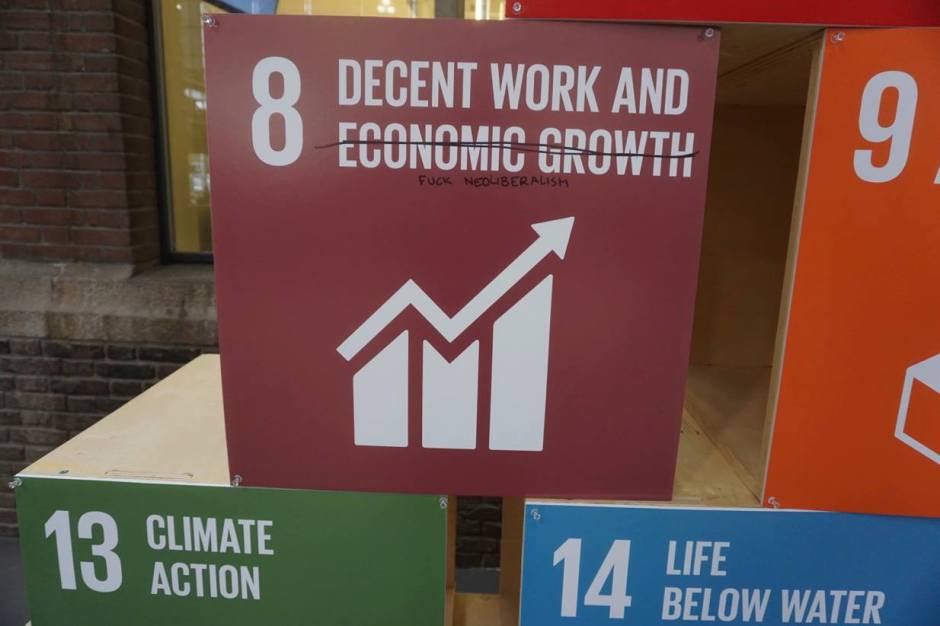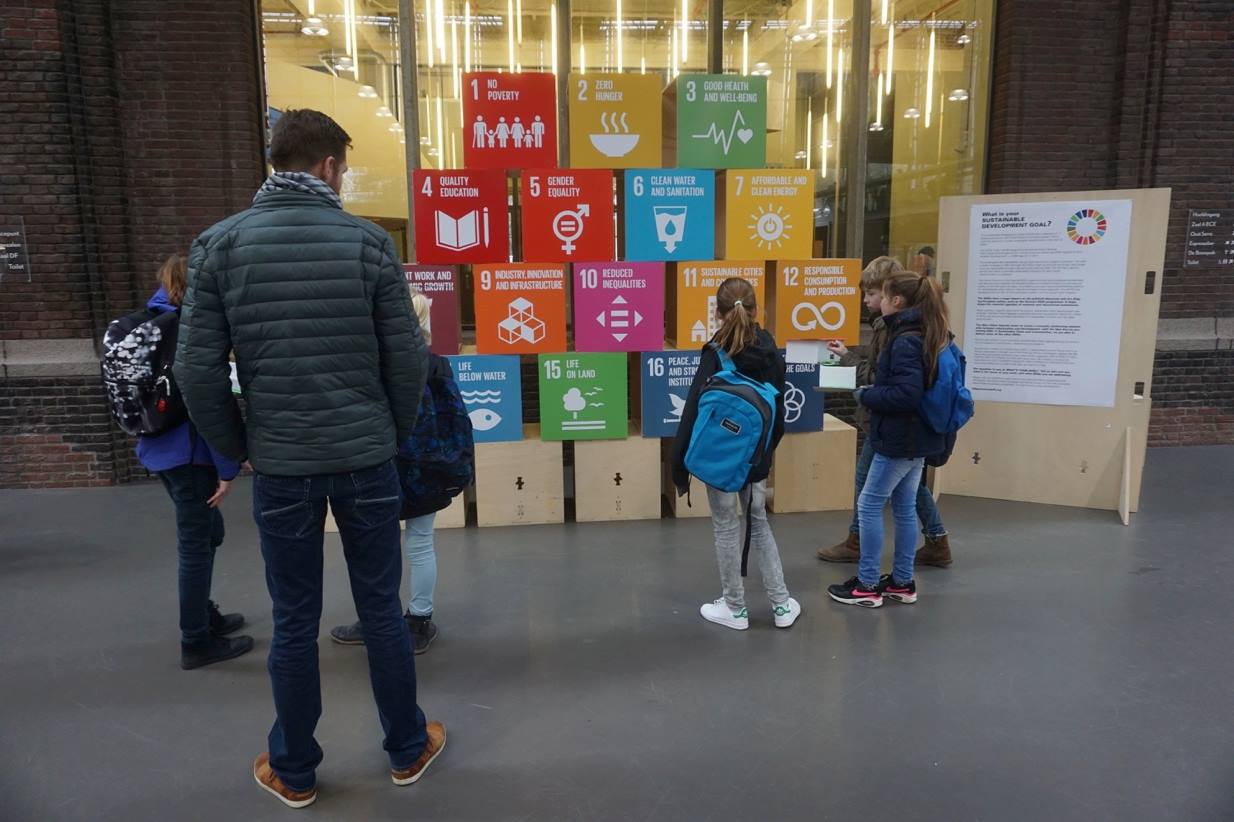 Text by Roberto Rocco:
Text by Roberto Rocco:
In March 2018, I set up an exhibition on the United Nation’s Sustainable Development Goals at the Faculty of Architecture and the Built Environment of the TU Delft. A few days later, SDG 8 “Decent Work and Economic Growth” was defaced. There is no way to know who did this, although it must have been done in front of quite a few people working at the Model’s Hall in our faculty.
For many days, I struggled with the validity of the protest. Protest is healthy and desirable: we live in an open society. But I came to the conclusion that the protest was unfair: I was openly trying to discuss the SDGs in a democratic way, and for that I set up not only an exhibition, but also lectures, activities, discussions and a long event titled
EDUCATION FOR THE CITY WE NEED: HOW DO WE TEACH THE NEW URBAN AGENDA?
I also organised the link between BK and the UN-Habitat, through which the faculty can have a real impact on policy making that affects the lives of millions of people, through the discussion on how to teach the New Urban Agenda and SDGs. I think if someone disagrees with my position on advancing sustainable development studies in our faculty, they have plenty of opportunities to engane in real dialogue and express their opinions. They could, for example, organise an exhibition, or a lecture, or a round table. Defacing someone else’s work is violent and dishonest, because it does not engage with the essence of what is being said. This person only considered that one sentence taken in isolation, without considering the real essence, role and impact of the Sustainable Development Goals.
The protest was celebrated on a Facebook page, and the defacement supported. The argument is that the current model of development based on economic growth is unfair and is the cause of inequality and poverty in the first place. The SDGs do not address the CAUSE of poverty and inequality.
I do not disagree with this argument. However, I do not believe that the SDGs are about advancing a neo-liberal model of economic development, but instead point the way to a much more inclusive form of development, where there is some kind of economic development in places where there is none, and where poverty is rifle. I am talking about countries in the Global South that suffer from chronic poverty, where there are no opportunities for human development. Let me be clear: sustainable development means human development that is inclusive, fair, and in harmony with environmental rights and cultural rights.
I want to sympathise with the person who defaced the exhibition on the Sustainable Development Goals I set up at the Faculty of Architecture and the Built Environment of the TU Delft.
I want to tell them, you are right! Neoliberalism is one of the biggest problems humanity faces today, because it is utterly and completely unsustainable, both from an environmental and from a social point of view. It is morally indefensible.
But I also want to tell this person: you are missing the point of the Sustainable Development Goals. The key in is the world “sustainable”. Maybe this person thinks “sustainability” is one of those fancy concepts that comes into fashion then fades away. It is not. Sustainability is a field of studies that involves radical proposals to make our world fairer and more inclusive. In a way, it is the contrary of neoliberalism. If you don’t believe me, please try to read the book: “Understanding the Social Dimension of Sustainability” by Dillard, Dujon and King.
Back to the SDGs. Maybe they are flawed. But this is the best thing we could agree on so far, and they are working! Extreme poverty is being eradicated, societies are progressing, people are getting vaccines. There is a VERY LONG way to go, but we are much better off than, say, 30 years ago. The SDGs are good guidelines and frameworks for action. If you don’t understand my optimism, please look at this lecture: https://www.ted.com/talks/hans_rosling_shows_the_best_stats_you_ve_ever_seen
Contrary to our perception, the world has actually improved in the last 30 years.
Of course, our emphasis on economic growth is not sustainable, but some economic growth in places that don’t have any is necessary. The great challenges are INCLUSION and EQUITY.
I want to invite the person who defaced the exhibition to come forward and engage in real conversation with me and the Department of Urbanism, where these issues are being discussed every day in an open, democratic way.
What gave me heart was to see a group of Dutch children visiting our faculty, all holding little models they had produced, and discussing the SDGs! They were really interested and wanted to know more about it!
Roberto Rocco, r.c.rocco@tudelft.nl

